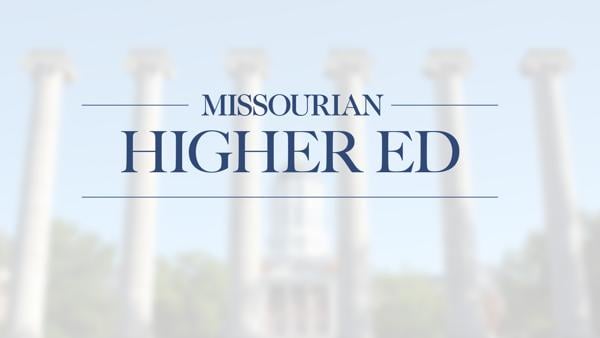Dennis Quaid Speaks Out on Cancel Culture and Reagan Film
Dennis Quaid Discusses Cancel Culture in “Reagan” Film
When we chat about Hollywood and its ever-evolving landscape, cancel culture often finds its way into the conversation. It’s a hot topic, one that has folks either passionately defending or vehemently opposing it. Remember when Dennis Quaid made headlines talking about his upcoming film, “Reagan”? The veteran actor didn’t just step into the spotlight to promote his role; he also took a moment to weigh in on this modern phenomenon of cancel culture. Let’s dive in and see where Quaid’s thoughts take us, shall we?
Understanding Cancel Culture
Before we dig deeper into Quaid’s perspective, let’s unpack what we mean by cancel culture. It’s not just a catchy phrase thrown around in interviews; it’s become a significant aspect of modern social and cultural discourse.
Cancel culture refers to the practice of withdrawing support for (or “canceling”) public figures or organizations after they’ve said or done something considered objectionable or offensive. This can range from tweets misread in a different context to movie roles that simply don’t sit right with some audiences. But why do these reactions become so polarized? Think of it like a seesaw — on one side, there’s the desire for accountability, while on the other, there’s the risk of stifling free speech.
Now, imagine if every opinion was scrutinized under a microscope. How many of us would make it to a second date, let alone a public career? Quaid’s views on this sensitive matter hit home because they reflect a broader struggle that many in the industry face.
Dennis Quaid’s Perspective on Cancel Culture
Dennis Quaid, a seasoned actor with an impressive portfolio, dives into the conversation surrounding cancel culture with a refreshing honesty. He doesn’t shy away from the complexities of the topic. When discussing his portrayal of former President Ronald Reagan in the biopic “Reagan,” he emphasizes the importance of moving forward rather than getting bogged down in the past.
Quaid argues that the essence of storytelling relies on the freedom to express diverse viewpoints. Why? Because that’s where creativity flourishes. In his words, “Art should not be a safe space, it should be a challenging space.” He believes that if artists are afraid to tackle controversial topics for fear of backlash, we all lose out on impactful storytelling.
The Impact of “Reagan” and Its Reception
The film “Reagan” revolves around one of the most contentious figures in American political history. President Ronald Reagan’s legacy is filled with nuances, making the film a polarizing topic in its own right. Some view him as a champion of conservative values, while others see his policies as harmful. In tackling such a controversial figure, Quaid understands that the film may provoke a variety of reactions, but that’s part of its purpose.
Here’s where it gets interesting: when you create a film about a figure like Reagan, you’re inevitably diving into the historical and political cauldron of America. Some audiences might feel that a portrayal of Reagan shouldn’t exist at all, given his controversies regarding race, poverty, and foreign policy. Yet, Quaid defends the film’s ability to spark dialogue, stating that conversations about our past help to shape our future.
The Creative Process Amidst Cancel Culture
Now, let’s reflect a bit more on how cancel culture can influence creative endeavors, especially films like “Reagan.” It’s crucial to grasp how deeply intertwined these discussions are, making it more than just a surface-level issue.
Navigating the Minefield
Quaid recognizes that the current climate can feel like walking through a minefield. Think about it: filmmakers often face immense pressure to appease various audience segments, while also aiming for artistic integrity. This balancing act can seem overwhelming.
When moving forward with projects, Quaid emphasizes the necessity of collaboration. Engaging different voices ensures that stories are being told responsibly. It’s about finding that sweet spot where creativity meets conscientious storytelling.
The Role of Artists in Challenging Norms
Quaid posits that artists have a responsibility to test cultural boundaries. Instead of shying away from difficult subjects, they should embrace them. It’s like swimming against a current; sometimes, you have to put in more effort to keep afloat. When artists tackle tough issues, they often serve as a mirror reflecting society’s highs and lows, sparking essential discussions.
This sentiment reverberates not only in films but across the broader artistic landscape. Writers, directors, actors — everyone has a role to play in ensuring that the narrative remains dynamic and vibrant.
Embracing Dialogue Over Division
In his candid discussions, Quaid emphasizes the importance of dialogue. “If we can’t talk about these issues openly,” he argues, “how do we ever hope to learn from them?” He fears that cancel culture, at its extreme, may lead to a chilling effect where people hesitate to express themselves.
The Need for Intent in Conversations
Here’s where it gets personal. Often, the intent behind a comment or action gets lost in the noise. Social media amplifies messages, sometimes stripping away context and intention, prompting a reaction before any thoughtful conversation can occur.
Quaid advocates for a culture that encourages understanding rather than quick-trigger reactions. It’s like sitting down for dinner with friends: sometimes, you need to dig deeper and ask questions to truly grasp where someone is coming from.
Cultivating Empathy in Artistic Spaces
When artists and audiences come together, that’s where genuine growth can happen. Quaid believes that empathy is fundamental in navigating these tricky waters. Imagine a world where, instead of canceling someone outright, we invited them to a conversation — how transformational could that be?
The Future of Storytelling in a Cancel Culture World
As we look to the horizon, what does the future hold for storytelling in the face of cancel culture? Quaid offers a glimpse of hope, asserting that the foundations of creativity can withstand the pressures of modern-day sensitivities.
Finding Common Ground
Ultimately, the survival of artistic expression hinges on our willingness to listen and engage with diverse perspectives. In doing so, we create narratives that resonate with a wider audience — ones that can challenge thoughts without fear of retribution.
The Role of Film in Social Dialogue
Films like “Reagan” play a pivotal role in shaping societal narratives. If we allow ourselves to approach films as starting points for dialogue rather than definitive statements, we might discover more common ground than we initially thought.
Imagine walking out of a theater feeling inspired to discuss the film with friends or family rather than dividing strictly into camps of agreement or rejection. That’s the kind of constructive discourse Quaid envisions.
Conclusion
Dennis Quaid’s insights into cancel culture and his portrayal of Ronald Reagan in the upcoming film provide fodder for essential conversations surrounding art, accountability, and the freedom of expression. As the industry grapples with these evolving themes, we have the unique opportunity to foster greater empathy and understanding through storytelling. After all, at the heart of every narrative lies the human experience.
So, whether you take pleasure in films that challenge societal norms or prefer those that provide an escape from reality, there’s room for all perspectives. Let’s not forget, as Quaid says, art should be a space that is both challenging and engaging, encouraging dialogue rather than division.
FAQs
1. What is cancel culture?
Cancel culture refers to the public’s withdrawal of support for someone who has said or done something objectionable, often impacting their career and public standing.
2. Why did Dennis Quaid speak out about cancel culture?
Quaid believes that creative expression should not be stifled by fear of backlash and that artists must engage with controversial topics to drive meaningful dialogue.
3. How does the film “Reagan” relate to cancel culture?
The film portrays a contentious political figure, which can elicit strong reactions from audiences, highlighting the tension between historical representation and modern values.
4. What does Quaid believe is essential for filmmakers in a cancel culture environment?
Quaid advocates for collaboration among artists and audiences to ensure stories are told responsibly while maintaining artistic integrity.
5. How can audiences contribute to a healthier dialogue in the context of cancel culture?
By engaging openly with diverse perspectives and focusing on understanding rather than judgment, audiences can foster more meaningful discussions around sensitive topics.







